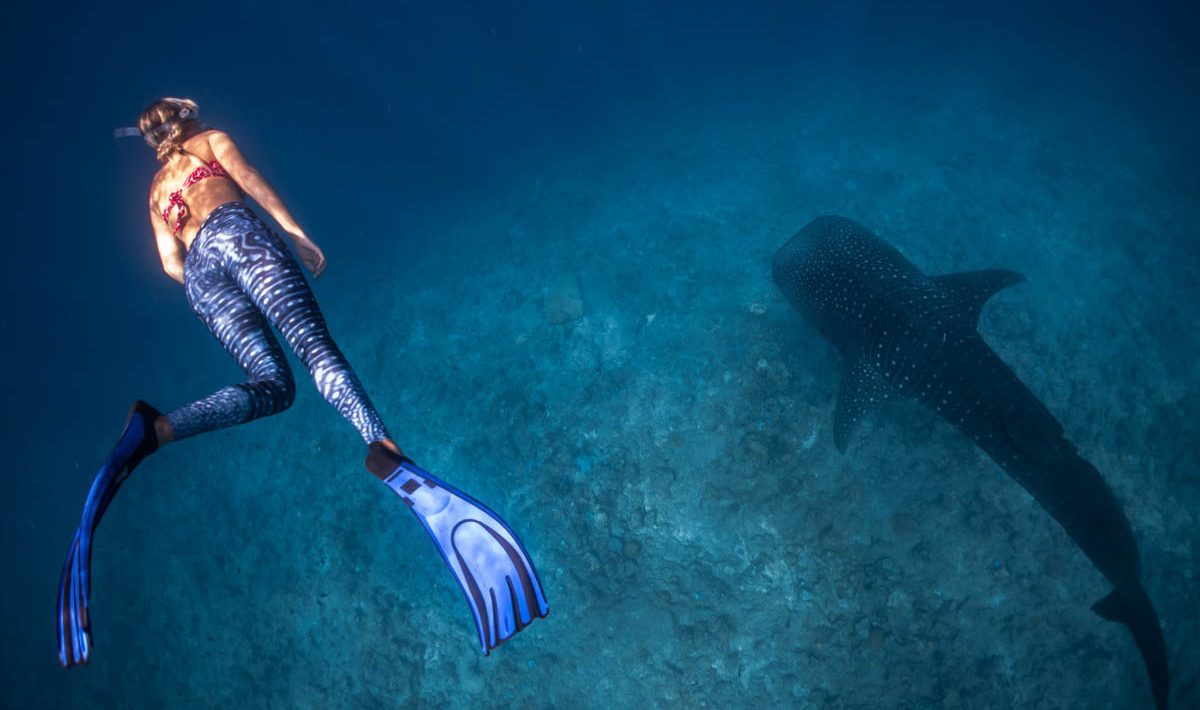As you’re probably aware there are many freediving organizations out there – but two of the most popular are definitely Apnea Total and AIDA. If you’re new to freediving it can be difficult to identify what the differences are between each certification, or determine which is best.
Table of Contents
“What is AIDA?”
Created in 1992, AIDA is a non-profit international freediving organization that is the most popular freediving organization in the world. Its rules and safety standards are used in most freediving competitions, its courses have a good reputation, and its certificates are widely recognized.
In short, AIDA is a very solid choice if you’re thinking about completing a freediving course. Each of its certifications have very strict and clear requirements that need to be met in terms of static apnea (STA), dynamic apnea (DYN), constant weight apnea (CWT) and theoretical exams.
Despite being the most popular organization, AIDA is continuously innovating and coming up with new specialized programs and courses.
“What is Apnea Total?”
Compared to the structured approach of AIDA, Apnea Total’s philosophy is that freediving is a more personal sport. It adopts a more personalized teaching philosophy instead of a one-size-fits-all approach.
Over the years Apnea Total has grown in popularity in no small part due to its flexible system that puts little to no pressure on students. It has no written exams, nor does it have rigid goals that need to be met.
Instead, Apnea Total espouses that each student should simply focus on their own personal goals – be it to win competitions, dive deeper, or get closer to aquatic wildlife.
“Which is Best?”
As you can see both AIDA and Apnea Total have very different philosophies. But what may surprise you is that it isn’t that easy to determine which one is best.
On one hand, AIDA certifications are more widely-recognized and are even accepted for entry into the advanced courses of other freediving organizations. However that really isn’t that big of a deal as Apnea Total students can simply pass a test in its place.
In most cases it comes down to a question of personal preference. If you find that you would like a more structured approach then AIDA may be the way to go. However if you’d prefer a more personalized learning experience then Apnea Total may be better.
Conclusion
Still not sure which to try? In that case you may want to look into the Apnea Boom freediving school on Sal Island in Cabo Verde. It has instructors and courses that meet both AIDA and Apnea Total requirements, and you can contact them for a course enquiry if you need further details.
Learning freediving in Cabo Verde is definitely a treat, and Apnea Boom has a wide range of course that you can choose from. Some of its courses are even specialized and will teach your spearfishing, help you to improve your ability to hold your breath, learn top-level athletic techniques, or study safety and rescue procedures.





